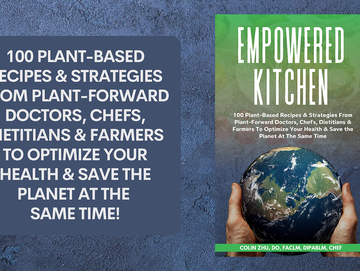By Taylor Payne. As a Marketing Specialist at Scribe Media, her role is to help future authors discover Scribe's services through content marketing, email marketing, and organic acquisition.
A rags-to-riches story can be one of the best motivators and could be the kickstart that some people need to embark on their path to success. We all have different metrics for success: financial security, climbing the corporate ladder, building a dream home, etc. Whatever your metrics are, you can't deny that there is a great story behind every successful endeavor. You should share your success story, not only as a motivational tool but also as a powerful marketing strategy. Do you have a success story waiting to be told? Here are five book marketing tips to help you grab more potential readers for success.
1. Pick a Catchy Title
Your success story may be a potential bestseller in terms of content. Still, it’s the title that will most likely catch the attention of many readers. This statement holds especially for a first-time author who is just starting. A good title can make or break your story, so you have to make it count. To help you choose a title, you need to decide early on what tone you want to convey. Do you want to be funny? Then go for a whimsical title with puns. Do you want to be serious? Make your title sound authoritative. Your title should always resonate with the message you want to convey. While working on your story and title, it is also best to look around for reliable book publishing options for self-published authors.
For those looking for a more traditional path to publishing, here are some book publishing types to review. When it comes to your book title, this is one of the first things publishers or acquisitions editors are going to consider. It's often included in the subject line of the query letter and atop your book proposal. So in addition to the tone and message you want to convey, it should be unique and exciting to someone who has seen a lot of books.
2. Promote Yourself
The best way to market your story is by word of mouth. Like any excellent product, your story has to sell itself. But while your story is still in its infancy stage, be the driving force behind its marketing. Start a blog if you don’t have one already. Promote your story through your blog and make sure it reaches your target audience, and your target reader. If maintaining a blog is too tedious for you, you can also tap other social media influencers to promote your story. Use the digital platforms available to make your social media presence visible. Creating a book trailer and other accompanying videos that share takeaways from your blog or story is going to help your book promotion later on when you want to start growing book sales.
Until then, it's going to help you grow your email list and create a community of readers who will provide feedback about your story that resonates with them. And then, you can write more blogs or content later on that continues to bring them back. You can also collaborate with your local bookstores to help promote your story. Another good way to promote your story is through print books. A good book marketing strategy is to hand out excerpts or a book description. Once your story snippets intrigue people, it's not long before they purchase the entire book for themselves. Going one step further, your most engaged early readers are perfect to leave a book review upon book launch.
3. Be Your Own Story
A delightful story sells, but only when it is credible. Above all else, be the poster child for your own story. Your life should resonate with the story that you are trying to sell. Your target audience will be quick to find out if you are indeed telling your story as it is by the way you live your life. What previous books have you written? What anecdotes are memorable? How can that add to your author bio? Remember that your life will literally be an open book once you put your story out there. So don't lose hope if people will criticize you or will not agree with you.
The critical marketing tool you can use here is nothing but your sincerity. Tell your story like it is; you can make it funny, witty, or intriguing, but don’t forget to keep your story's essence accurate. You may have encountered many challenges and even failures on your way to success, don’t leave them out. Chances are, these setbacks will be the turning point in your story. Like any other product, false advertising will turn your clients away. Try to stay as true to your story as possible and live your story every day.
4. Incorporate Your Morals
When you are trying to tell your story, ask yourself, what is the moral of this story? Don’t tell your story just for the sake of getting it out there. The end goal of telling your success story should be to inspire others to help them strive to do the same. Your readers can achieve this goal by incorporating your morals into the story. What are your readers’ takeaways from reading about your success story? This factor all depends on the morals that you want to share with your loyal audience.
You can then start to find book bloggers, influential people, and community leaders with thousands of people or social media followers who align with your morals. You can create virtual book clubs, exclusive book signings, and a reader magnet to interact with them. Maybe you join their social media. This helps build an author platform with new email subscribers and does wonders for your long-term promotional efforts for an upcoming book.
5. Have a Focus Group
Your success story should not be a one-person journey. Once you have your plot put together, gather a group of people whose opinions you value the most and use this venue to have them critique your work. This get-together should be a great venue to bounce ideas off one another. It can also be a place where you can incorporate some new ideas that you otherwise wouldn’t have thought of on your own. Remember that two or more minds working are better than one.
When having a focus group discussion, make sure that you are open to any form of criticism. Use their critiques to refine your work. This openness is a great way to see your work from another person’s perspective. Through a focus group, you will feel how your general audience would react to your story. Another bonus for focus groups? It is the perfect way to market your book early on. Use this inner circle to get the word around before your book hits the shelves.
Conclusion
Stay true to yourself and your story and take every opportunity to get feedback from your target readers or audience. Getting that buy-in from them is less about fancy book covers and mimicking a bestselling author, and more about providing content that resonates with people who already know you. Utilize social media sites, update your email signature, and think about how you can turn that community engagement into book reviewers for your story.


